©Copyright 2019 SIKO POLYMERS (SUZHOU) CO., LTD All rights reserved.Site Map Powered by iwonder.cn
- Email Uskevin@sikopolymers.com


Market opportunities for biodegradable plastics
The plastics industry is booming
Plastics were first invented in the late 19th century and were used in specific areas such as wartime industry in the 1930s, before spreading to consumer goods and product packaging in the 1950s.
Since its introduction, the world has produced more than 8 billion tons of plastic, a number that continues to increase, and currently produces about 350 million tons a year.
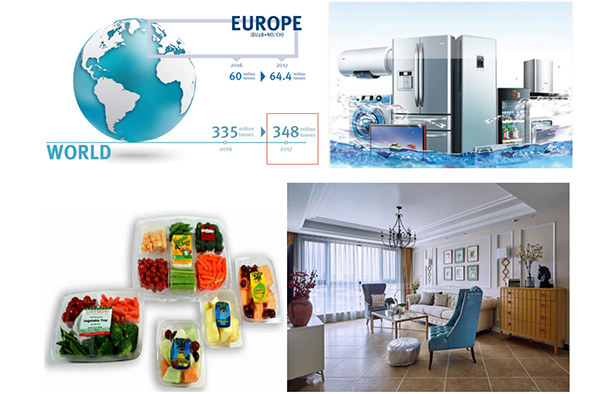
Plastic garbage
According to a report released by the Organization for Economic Cooperation and Development (OECD), the amount of plastic waste produced globally has been increasing since 2015, with more than 300 million tons entering the environment every year, and is forecast to reach about 12 billion tons by 2050.
About 76 % of plastic waste is buried deep in landfills, about 12 % is incinerated, only about 9 % is recycled and about 3 percent ends up in the ocean, according to statistics.
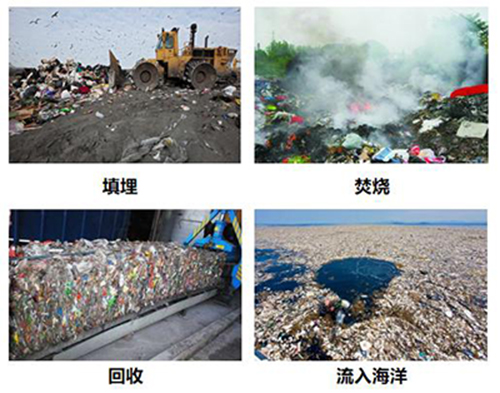
Plastic pollution is alarming
Soil pollution
A Norwegian study estimated that in Europe and North America. Each year, 110-730,000 tons of microplastics enter agricultural soil.
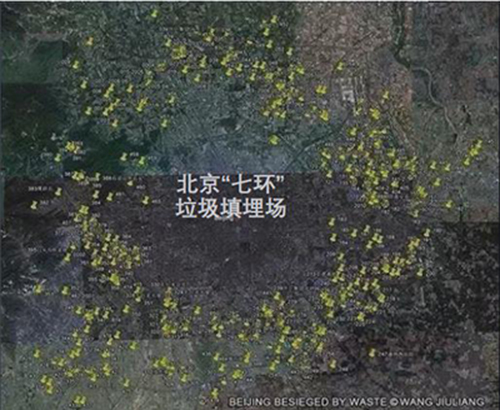
The air pollution
Plastic gives off chemicals and burns worse!
Plastic pollution could cause 10% of oxygen to disappear!
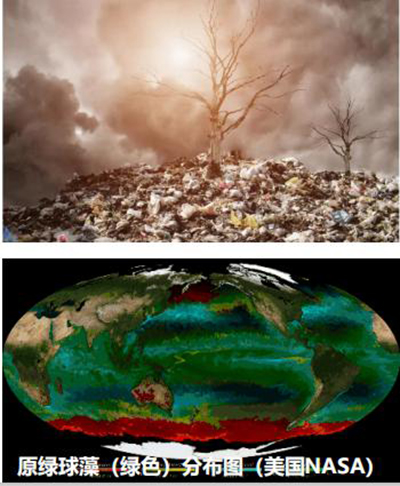
Water pollution
It kills hundreds of seabirds, 100,000 Marine mammals and countless fish every year!
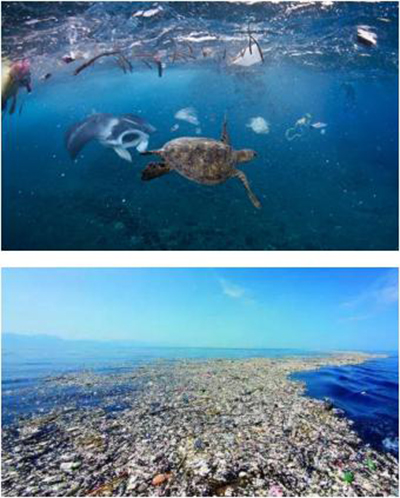
Plastic pollution is alarming
Earlier this year, a species of Telopod named Eurythenes plasticus was found in the Mariana Trench, the deepest part of the ocean known to be between 6 and 11 kilometers deep. It was named because it was filled with plastic debris.
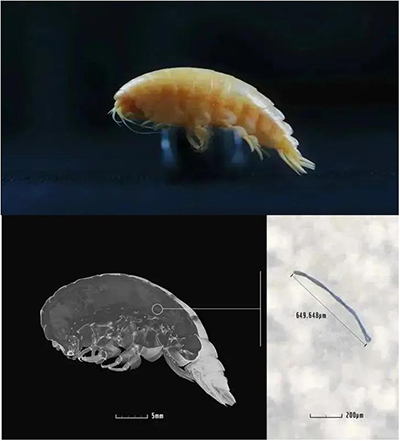
Scientists hope the name will highlight how pervasive plastic pollution is, not only in the water we drink, the food we eat, the air we breathe, but also in animals that live about 7,000 meters below sea level.
Microplastics have entered the food chain
Unexpected understandable, the industrial product of human civilization will eventually return to humanity itself, of the university of Newcastle in Australia study, each people all over the world average weekly intake of about 2000 micro plastic particles or fibers, about 5 grams of plastic, that doesn't mean that we eat a credit card every week, but it's true that micro plastic will have bad effect on organisms.
Laboratory mice have shown that microplastics can accumulate in the liver, kidneys and intestines, showing toxic side effects on the brain;
Microplastics can also enter the bloodstream through the gut and migrate through the body, where they accumulate in blood vessels and cause blood clots.
The microplastics entering the body may cause physical damage and inflammation of organs because of friction and other effects.
In addition, microplastics contain some deadly chemicals, such as phthalates that promote the growth of breast cancer cells and bisphenol A, which interferes with reproductive hormones and reduces fertility in both men and women.
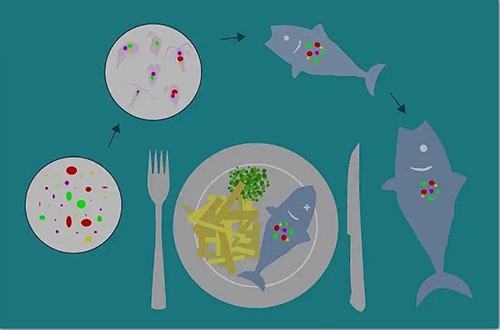
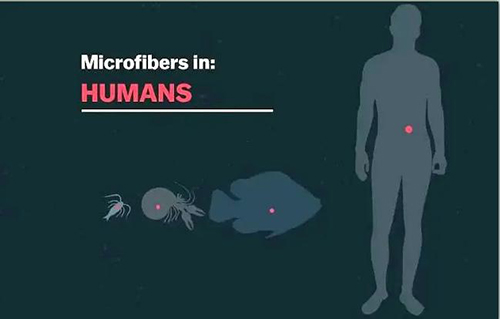
The global ban on plastic upsurge
China
In January 2008, the General Office of the State Council issued the Notice on Restricting the Production, Sale and Use of Plastic Shopping Bags, known as the "Plastic Limit Order".
In July 2020, the National Development and Reform Commission, the Ministry of Ecology and Environment and other nine departments jointly issued the Notice on Solid Progress in the Control of Plastic Pollution, which is known as the "new version of the Plastic Limit Order" in the industry.
Non-biodegradable plastic bags, plastic tableware and single-use plastic straws will be banned from January 1, 2021.
Europe – EU
In 2005, the European Union issued a ban on plastic bags.
In 2018, the European Parliament passed a directive on the control of plastic waste.
Italy, Germany, the United Kingdom, France, Iceland and other countries have passed or increased the ban on plastic laws.
Denmark, Bulgaria, Belgium and other countries impose taxes on manufacturers of plastic bags.
Retailers in Portugal, Hungary, the Netherlands and other countries want customers to charge for plastic bags to discourage their use.
Asia and other countries
South Korea, Japan, India, Thailand, Pakistan, Mongolia and other countries have introduced corresponding laws and regulations to ban plastic.
The governments of Oceania, Australia and New Zealand have announced bans on plastic bags.
In North and South America, the United States, 11 states have already imposed bans on plastic bags, although they have not yet done so.
Canada, Mexico, Chile, Brazil, Panama and other countries have put forward a ban on plastic requirements.
Africa has one of the strongest bans on plastic in the world.
As of June 2019, 34 out of 55 African countries had enacted laws banning the use of single-use plastic bags.
Biodegradable plastics welcome development opportunities
The renewed "plastic limit" has not only intensified efforts to prevent and control "white pollution", but also released the huge market potential of biodegradable plastics.
According to statistics, China consumes about 4 million tons of shopping bags, 2.46 million tons of agricultural film and 2.6 million tons of takeout packaging every year. And with the rapid development of express delivery and takeout business, the demand for plastics continues to grow.
Part of the demand for large quantities of plastic products will shift to biodegradable plastics after the "plastic limit" upgrade.

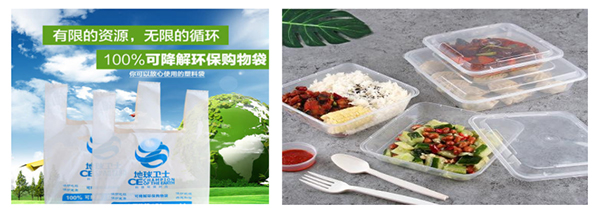
As a professional solution supplier of various biodegradable materials, engineering plastics and special high performance polymers, we have been keeping contribute to R&D, produce and supply the most suitable material for our global customers utilization. We assure consumers that our products are absolutely non-toxic, No pollution, please rest assured to buy.